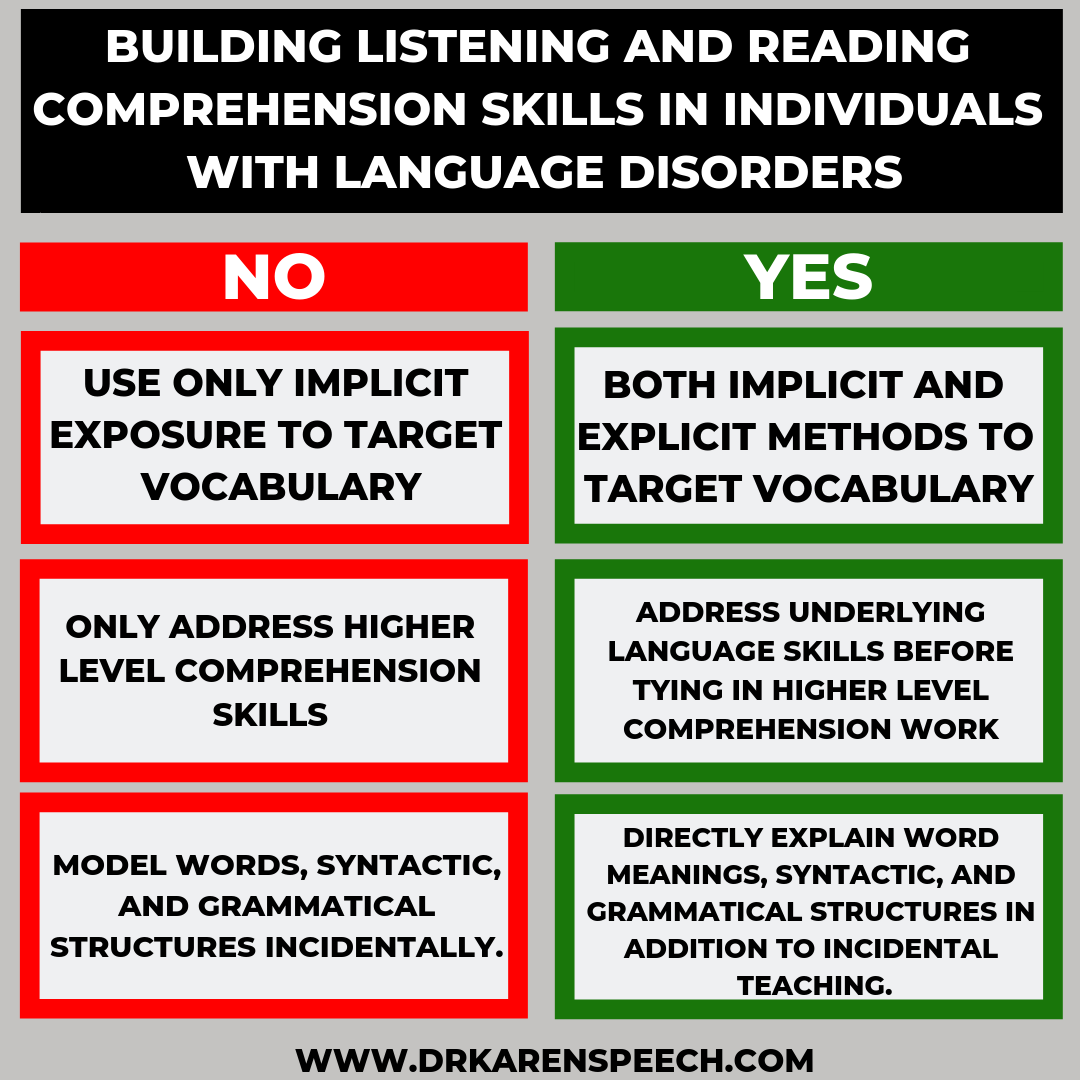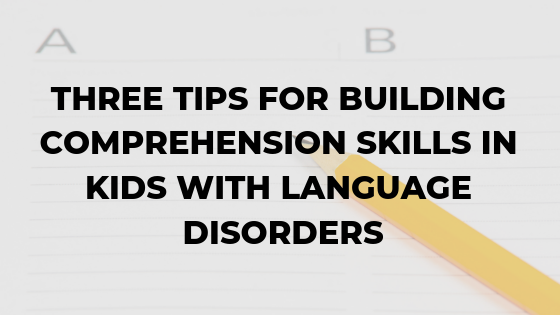Figuring out how to build listening and reading comprehension in students with language issues is a tall order.
There always seems to be a million skills they’re struggling with and not enough hours in the day to get to them all.
Let’s face it, there are a lot of articles, studies, presentations, materials (and so on) that give insight to the way SLPs should be treating language disorders.
Information overload can make it really challenging for full-time clinicians to make sense of it all.
That’s why this month on the blog, wrote this article called “The Simple View of Reading: Why It’s Not So Simple and What that Means for Speech-Language Pathologists”.
If you read the review, you know that vocabulary, grammatical knowledge, and word reading abilities were highly correlated with reading comprehension abilities.
You also know that comprehension monitoring and inferencing did not significantly predict reading comprehension abilities.
But of course, whenever we read in-depth research reviews, the next logical thing we want to know is how to apply it to therapy.
So today, I wanted to share three overarching principles that fall in line with both cutting edge and seminal language therapy research.
I’m going to share them with a “Do this, not that” style visual to give you three tips for shifting the way you approach language therapy and build your students comprehension skills.
In this video below I explain how it works:
Here’s a static image of that visual from the video for further reference:

After you watch the video, you can pop over here to the original blog post and read the full review of Kim’s (2017) study.
In my signature program, Language Therapy Advance, I help clinicians find the answers to these types of questions about how to support literacy, so they can leverage their expertise and gain more confidence in their clinical skills, and break through therapy plateaus (especially relating to spelling and grammar)…
I also go in to more details about how you can boost grammar, spelling, and literacy skills…as well as create high-impact language therapy systems on my Facebook page.
I used to feel like I was banging my head against a concrete wall as I drilled the same old grammar flashcards over and over again. And I was clueless what to do about spelling.
But when I started truly studying how language works during my doctoral program, things all started to make sense. That’s why I share resources like the article above with SLPs like you.

